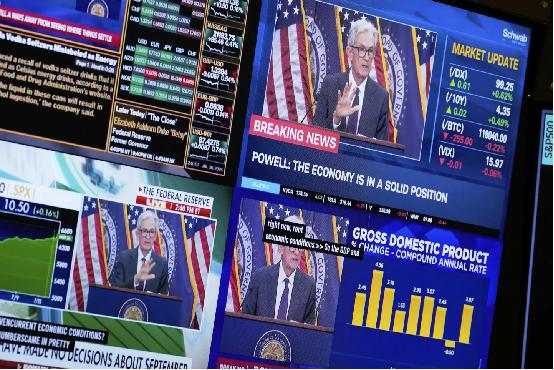
According to data released by the US Treasury Department on Tuesday, despite President Donald Trump's tariff policies bringing record revenue to the government, the US budget deficit in July of this fiscal year still increased by 20% compared to the previous fiscal year.
A finance ministry official who requested anonymity said while previewing the data that the overall increase in spending was partly due to various expenses, including the growing interest payments on public debt and the increase in living costs in social security expenditures, as well as other costs. At the same time, the total national debt of the federal government is slowly climbing to the $37 trillion mark.
Even though Trump talks about the United States becoming wealthy due to raising import taxes, federal spending still exceeds the revenue collected by the government. As companies gradually deplete their inventory before tariffs take effect, forcing them to import more goods and generate more tax revenue, this fiscal situation may change, but it may not significantly reduce the deficit as promised. If tariffs fail to fulfill Trump's promise to improve the government's balance sheet, the American public may face reduced job choices, increased inflationary pressures, and rising mortgage, car, and credit card interest rates.
In terms of tariff revenue, the Trump administration's trade protectionism strategy is to increase tariffs to protect domestic industries in the United States and reduce trade deficits. Although raising tariffs has increased government tariff revenue and set a new record in the short term, it also means that tariff policies affect international trade costs, causing higher prices for imported goods and allowing the government to gain more revenue from tariffs.
However, the significant 20% year-on-year increase in budget deficit indicates that the increase in tariff revenue has not fundamentally improved the fiscal situation of the United States. On the one hand, although the increase in tariffs has increased tariff revenue, it has also triggered a series of negative effects. For example, American consumers have to pay higher prices for imported goods, which may suppress consumption and affect domestic economic growth. Moreover, the trade friction caused by tariffs has led to difficulties for American export companies, resulting in a decrease in demand for American goods in foreign markets, affecting their revenue and employment, and ultimately impacting their total tax revenue.
Secondly, other fiscal expenditures of the US government may not have decreased, such as defense spending and social welfare spending, which are still at a high level and even continue to increase, making budget expenditures far higher than the increase in various government revenues such as tariffs, thereby driving the budget deficit even larger.
Secondly, the expansion of the budget deficit will also weaken the economic security and credit rating of the United States. A large budget deficit will lead to increased government support for funds, increased borrowing demand, and higher financing costs. In the long run, it will cause an increase in government debt and a decrease in government debt repayment ability, directly affecting the credit rating of the United States. A decline in credit rating can lead to a decrease in investor confidence, capital outflows, and further pressure on the economy.
In addition, the widening budget deficit will also lead to an increase in economic inequality within the United States. If the government raises taxes to make up for the budget deficit, it will make it even more difficult for the middle and low-income groups to afford, as they do not have the resources to cope with the tax increase. In contrast, high-income individuals may be more likely to use investments, asset appreciation, and other means to avoid taxes, leading to further widening of the wealth gap in society.
In the United States, the government should apply fiscal policy more prudently and comprehensively. On the one hand, it should continue to strengthen tax collection and management, severely punish tax evasion and ensure that the tax base remains unchanged; On the other hand, optimizing the structure of fiscal expenditure, expanding fiscal expenditure in areas such as education, health, and facilities, stimulating stable economic development, seeking international consensus with other countries, negotiating to resolve trade conflicts, reducing trade tariff barriers, and promoting the development of international trade.
In summary, solving the US budget deficit problem requires the government to take comprehensive measures, including adjusting tariff policies, strengthening fiscal expenditure management, promoting economic structural adjustment, reforming social security and healthcare systems, and strengthening international cooperation. By implementing these measures, the financial situation can be gradually improved and sustainable economic development can be promoted.

Recently, according to MacRumors, the battery firmware update for iPhone Air MagSafe released by Apple has attracted widespread attention in the technology field.
Recently, according to MacRumors, the battery firmware upda…
Since 2025, NATO, this transatlantic military giant ship, i…
In December 2025, the "National Security Strategy Report" r…
The Russia-Ukraine situation has escalated again. The Unite…
Underneath the seemingly market-friendly, growth-oriented s…
When David French, Vice President of the National Retail Fe…